AI generated photo
“Peace does not depend solely on treaties and commitments,” said Jean Monnet, generally regarded as the “father of the European Union”, “but rather, on the creation of conditions which, although they may not change man’s nature, are conducive to peaceful behaviour towards others.” You’ll have gathered, I should think, that Mr. Monnet was a thoroughly decent sort of chap who truly believed that the European Economic Community, as it was then called, would prove to be a model that others would choose to follow. I never met Monnet but I worked with Dirk Spierenburg and Raymond Poidevin on a 1994 book called “The History of the High Authority of the European Coal and Steel Community”, which told the blow-by-blow history of how the so-called ECSC, which turned into the Common Market, came into being. This meant frequent meetings to discuss the progress of our work and how to overcome the various obstacles, most often getting together in a small bar not far from the press entrance of the European Commission. I even get a mention in the acknowledgements for my help in editing the draft of the first English edition, the book having been initially published in French. Incidentally, I can thoroughly recommend the book although that will come as no surprise, I’m sure (although no, I don’t get royalties). Spierenburg had been the Director General of Foreign Economic Relations in the Netherlands, as well as the Deputy Government Commissioner for the Marshall Plan since 1947, while Poidevin was Professor of History at the University of Strasbourg III when I knew him. He was also the author of several books, including (somewhat ironically, perhaps) one called “Origins of European Integration”, written between 1948 and 1950.
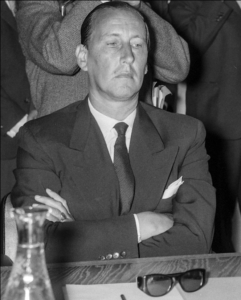
When I was working with these two notable, charming and knowledgeable gentlemen (and enjoying a beer with them as we sat and chatted, reading and correcting proofs), those involved with the creation of what would become the European Union were still taking cautious backward glances at the Second World War, not so very far in the past, and were generally very well aware of where national hatred could lead. It seems to be the natural state of humankind, despite the fact that friendliness and cooperation would clearly be far more advantageous for everyone. Unification is never simple, although India achieved it, creating a vibrant, pluralist parliamentary democracy. Europe has been trying the achieve something similar, but despite having fewer people, still has the problems of nationalism and language boundaries to overcome. India had had similar problems but overcame them. Europeans, however, are an argumentative bunch and while everything was running fairly smoothly in terms of unifying health and safety standards, extreme nationalists started trying to break the Union apart. Those of us who firmly believed in it went on well-attended marches of protest but still Britain voted (narrowly) to leave the EU in a process that became known as “Brexit” – a silly name for a very silly process. Too many people, it seems, had been persuaded that an agreement to cooperate in raising standards was equivalent to surrendering a country’s sovereignty to the dreaded “foreigners”. Childish, I know, but it sold newspapers and won votes among those who liked to holiday abroad but didn’t want to mix or mingle with the locals once they got there. Racism remains a powerful force, still exploited by some less responsible politicians.
So how does the European Union – still inclined to be fractious even when theoretically cooperating – face up to a difficult future? Can it develop into a “superpower” or will it engage in fragmentation and come to nothing? I quite like the idea of the former but I’m inclined to find the latter more likely. Napoleon
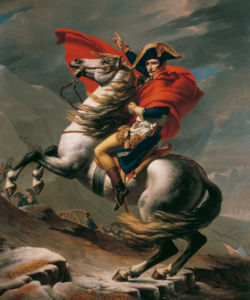
Bonaparte once said “You may wish to say that, without the Revolution, you would not have had me. Nevertheless, without the Revolution, France would have been more happy.” At least, that’s how he is quoted by Joseph S. C. Abbott in his late 19th century book on the life of the great French leader. I’m convinced that in voicing that opinion, Napoleon was wrong. There is an old saying in English: “you can’t make an omelette without breaking a few eggs”. Or, in this case, chopping off a few heads. But such violence isn’t necessary to build a peaceful continent of cooperating nations, as long as one single one of them doesn’t insist on being in charge of the rest. When I was reporting on EU affairs from Brussels, I knew several of those anti-E U campaigners, but in my recollection they mainly wanted to have Britain in charge, regardless of how well (if at all) this would work. It was rather like the old children’s game of “I’m the king of the castle and you’re the dirty rascal”. Of course, in the eyes of the ultra-nationalists, everyone from a different country, however closely related in biological or evolutionary terms, was, of course, the “dirty rascal”. They still think that way.
Perhaps that does demonstrate one of the factors that makes fragmentation a more likely outcome that the establishment of a “superstate”. If there is no clear leader, the various members (or member states) are inclined to squabble about just who is in charge. It becomes like one of those endless committee meetings in which all the participants try to come out on top, even when there clearly cannot be a “top” to be on. One of the principle issues concerns security. How can the people of Europe feel safe from external attack when the EU itself is not a military power and lacks the EU-controlled means to repel invaders and keep its citizens safe ? In addition, we now have geo-economics in which enhanced cooperation has become essential. US President Donald Trump’s aggressive policy of imposing tariffs left, right and centre clearly makes the situation worse for everybody. It also looks likely to make matters much worse for the US itself.
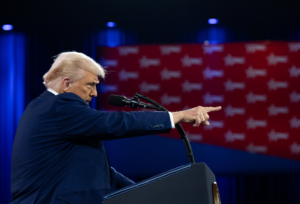
Of course, the EU is set to get bigger, and its current rulers know it must reform itself if that is to work. We should recall that its present structure was established when the Common Market (as it was then) had just six member states. It has grown (and in one instance shrunk again) since then, but institutionally it remains the same. Now more countries want to join, especially from Central and Eastern Europe. That may be just as well for the EU’s future as its population dwindles and its people grow older. Those are factors that could make the EU less competitive globally. If the EU is really to become a superpower, it needs to deepen the cooperation among member states, becoming a family instead of a club with many and various members. The report in 2024 by the former President of the European Bank and Prime Minister of Italy, Mario Draghi, highlighted the need for innovation, investment, and unity among member states to ensure prosperity and stability. It also said that the EU needs to look further ahead if it wants to remain competitive as markets and global politics progress. As far as so-called ‘Cohesion policy’ is concerned, the report called for the issue of reducing regional disparities to be addressed urgently in a bid to ensure more balanced growth, also calling for greater investment in less developed regions, so as to enhance their infrastructure, education, and technological capabilities.
There is a big problem here. The European Union is a group of separate countries, each with its own history, aims and ambitions, and the council of finance ministers or even heads of government are totally unsuited to developing a real European parliamentary democracy, however well-intentioned they may be.
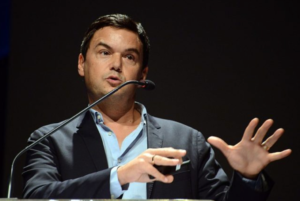
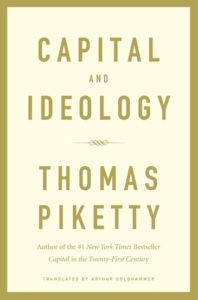
The gifted French economist Thomas Piketty explains this problem well in his book, Capital and Ideology. “The Council is a body consisting of one representative per country. As such, it is designed to pit the (perceived) national interests of member states against one another. In no way does it allow for pluralist deliberation or construction of a majority based on ideas rather than interests.” That means it is clearly unsuited to turning the European Union into a superpower of any sort. As he points out in this excellent book (which I wish I had owned when I was studying economics), “the German finance minister alone represents 83-million citizens, the French finance minister 67-million, the Greek finance minister 11-million and so on.” Looking for a European superpower? It may be very hard to find. As Piketty points out, tranquil deliberation of the various issues and the various points of view they attract could prove all but impossible.
Things were never meant to be like this, but economic events can behave like some kind of virus, spreading rapidly through the capital markets of the world. Just look at the Great Recession that began in 2008. Millions of people in Europe, the United States and the world at large lost their jobs and their homes. Those who had set aside money “for a rainy day”, or for their children’s education, saw it dwindle away to a fraction of its previous value. “This is not the way things were supposed to be,” wrote the economist Joseph E. Stiglitz in his book, Freefall. “Modern economics with its faith in free markets and globalization, had promised prosperity for all” he wrote. It failed to deliver, however. But even within the EU, things are not quite what they were meant to be. “The European institutions,” wrote Piketty, “in which ministerial councils currently play the central and dominant role, relegating the European Parliament to a supporting role, were designed to regulate the broad market and conclude intergovernmental agreements; they were not designed to make fiscal and social policy.”

They have been forced into that role that they never sought, do not want and at which they are really not very good. It’s time for someone else to have a go. Indeed, among the leaders of those member states that favour a federal system of government, quite a number think it would be best to transfer all power over new taxes to the European Parliament. As someone who spent several years reporting on the European Parliament, I must say it would appear to be an excellent plan (even if some of the members I recall were far from being community-minded. Or even intelligent). Succeeding in getting them to reach agreement would seem to be quite a challenge.
What’s more, Draghi’s report argues that the EU will face what he calls “an existential challenge” unless it manages to vastly increase the current level of investment and also to reform its industrial policy. Yet again we reach a bifurcation between becoming a superpower or a failed nonentity. We should never forget, of course, that watching from the sidelines will be Vladimir Putin, looking for any mistakes that might pitch Europe into his lap. I think we can safely assume that not many people outside the Russian border would favour such an outcome.
We should remember that the sudden end of the Cold War and the unanticipated collapse of the Soviet Union was at least partially down to friendship, in this case the personal relationship between Mikhail Gorbachev, the last leader of the Soviet Union, and the President of the United States at that time, Ronald Reagan.
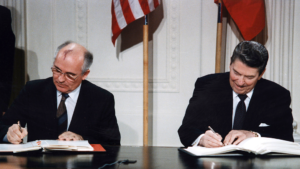
According to the historian Robert Service, Gorbachev had come to realise there could be no future for the Soviet part of the world, while it was clear that he and Reagan had developed a personal friendship. They liked each other. In the book by Simon Jenkins, A Short History of Europe – From Pericles to Putin, he says that Gorbachev struggled to retain control, and he found that holding it all together was an impossible task. “In losing its autocratic character,” Jenkins wrote, “the Communist Party lost its brain and its spine. It disintegrated, and with it the fount of institutional discipline within the Leninist-Stalinist empire.” I was working in Berlin when the famous Wall was being dismantled. I noticed a bar right on the former frontier and went in for a drink, which involved going downstairs. The toilets were in a cellar which was even further down and had a lot of stairs leading down to it. I went down, but I chose the wrong stairs to come back up and found myself in what had been East Berlin. Demolition teams were taking down what was left of the Wall, so I quickly realised I was safe, but it was nevertheless slightly disorienting to realise where I was. The beer was good, however, on whichever side it had been brewed.
Turning back to the European Union, we have to remember that the whole idea has its enemies. Among them, of course, we have President Putin, who doesn’t want a safe and economically successful group of countries on his doorstep. Then, we must consider President Trump, who seem to be opposed to seeing the EU become a rival for global dominance. It’s a fairly unlikely thing to happen, of course, since unlike the United States it has no ambitions to take over parts of the world and is fairly strongly opposed to other countries trying to do so, albeit without opposing such moves militarily. Mr. Trump, after all, wants to own Greenland, which belongs to Denmark, an EU member state, so of course he seem to dislike the EU. The EU has plenty of internal enemies, too. In Britain the more right-wing newspapers are opposed to it, being supporters of a country-based form of nationalism.
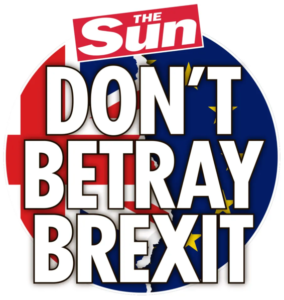
When there was talk of closer relations across Europe, one British newspaper ran the headline: “Don’t betray Brexit”. No, just go on hating everyone from any other country, presumably, but still go there on holiday. Of course.
But there’s another point we must consider: in order to become a super-power, a country (or in the EU’s case a group of countries) must have a burning desire to wield such global power. We know Putin wants it, seemingly seeing himself as another czar, perhaps, and so does Trump. But so far (and I think forever) the EU has shown no obvious desire to conquer and rule. As a group of mutually supporting countries devoted to trade it seems unlikely. It would be rather like the Boy Scouts deciding to conquer the world, which was never the intention of the movement’s founder, Robert Baden-Powell, as far as I know. Unless it’s some kind of underground power movement, planning to take over the world: today it’s just camping, carrying useful penknives and learning how to light fires, tomorrow it’s world domination. I just can’t see that as likely, somehow. And I think I’d look silly in shorts.
The nation states of the EU are, of course, individual and independent. They are completely unlike the states of America, too. As Thomas Piketty wrote in his book, Capital and Ideology, no member country has envisaged a totally federalist body, which would make the EU more like a single country. It has always been (and is treaty-bound always to remain) a group of individual countries and totally unlike the United States in its style of governance. “It makes no sense,” Piketty wrote, “to compare the US Senate to the European Council. The equivalent of the European Council would be a senate composed of the governors of the individual states, where two states, say California and New York, accounted for half the country’s GDP, which is roughly the situation of Germany and France in the Eurozone.” He adds: “Such a system would probably function very poorly, and the two governors would probably meet often without coming to any agreement.” Actually, that situation sounds disturbingly familiar…
So, now we come to the nub of the issue: superstate or super-flop, of no significance to anyone at all, really? The plain fact is apart from a few deluded lunatics with ideas above their station (and a hankering for raw, unbridled power) nobody really wants an all-powerful European Union trying to take over the world. You may recall that famous song from the 1963 musical, Pickwick? No-one was expected to take it seriously, especially since its early lines include the words: “If I ruled the world every day would be the first day of spring”. Which would, of course, be not only impossible but also extremely dangerous. If it could happen in reality (which, of course, it cannot) there would never be an autumn and hence no harvest, either. We’d all starve to death. Neither Presidents Putin nor Trump, nor even the mysterious and virtually unknown leaders of the highly-secretive North Korea at their most ambitious and power-hungry could wish for such an outcome. (Actually, in the case of the leaders of North Korea I’m not entirely certain; try reading Annie Jacobsen’s terrifying book called “Nuclear War – a Scenario” and you may feel a little less certain about what the future holds but very certain of just how stupid human beings can be. It may lead you to wanting a ban on all nuclear weapons, if only we could all trust each other to keep our promises). What it demonstrates, perhaps, is that while something may sound idyllic and beautiful there is almost always a downside that gets overlooked.
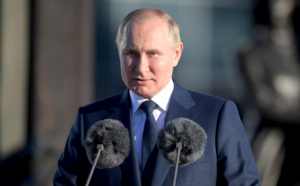
Do we Europeans really want to be part of a terrifyingly powerful superstate? I’m not sure I do, I’m afraid. What most of us would like best perhaps (apart from the likes of Trump, Putin and the North Koreans) is a group of peacefully co-existent countries without designs on one another’s territories or a wish to seize their raw materials and with absolutely no desire to go to war. In the end it all comes down to money. Many of those in positions of power are there because they are rich or because they really, really want to become rich by any means possible. Power helps them to get there. The super-rich and super-powerful (often the same people) have an almost religious belief in their right to be in charge. Even Putin, when he won Russia’s election in 2012,was seen to shed tears on taking over following four years of more liberal rule under Dmitry Medvedev, but not because he was sad at gaining power or at Medvedev losing it. He was apparently saddened by the fact that there had been serious protests about the result. It would seem he had expected the Russian people to be pleased that he was about to reimpose his own style of authoritarian government. I understand it’s called the delusions of power or grandeur. Well, at least there’s no risk of that happening in the European Union. Power is a dirty business, and I think that, although I want the European Union to be able to stand up for itself, I really don’t want it to become a superstate. Don’t worry: it probably never will.
Jim.Gibbons@europe-diplomatic.eu

